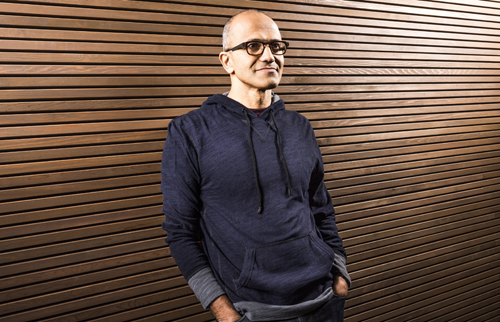
Satya Nadella, Microsoft’s new CEO (Photo courtesy of Microsoft)
We congratulate Satya Nadella on his recent appointment as CEO of Microsoft. A native of India, the achievements of Mr. Nadella represents a high moment for Asians climbing the global corporate ladder. He joins the ranks of other Indian heads of major international corporations, including Indra Nooyi, chairperson and CEO of PepsiCo; Ajay Banga, president and CEO of MasterCard; and Anshu Jain, co-CEO of Deutsche Bank.
According to Reuters, Mr. Nadella’s new status could make him “the most powerful Indian-born tech executive in the world.” Right here in Seattle. OK, technically in Redmond.
In some ways, it’s not surprising. A 2012 Pew Research Center report on social and demographic trends in the United States said Asians are “the best-educated, highest-income, fastest-growing race group in the country.” The report stated that as of 2010, Asians had become the largest stream of new immigrants to the United States. In the report’s survey, 93 percent of Asian Americans described members of their country of origin as “very hardworking.” Only 57 percent of them said the same about Americans as a whole.+
The consensus on immigration is evolving. Contrary to “taking jobs from Americans,” immigrants are proving to be an asset to U.S. companies, bringing their bilingual skills and culture to an increasingly globalized economy. Attentive people in Asian countries are listening when we bemoan the lack of skilled workers in the United States, and they are responding by bringing their skills and education here to fill that gap.
America is slowly, but steadily, becoming more and more receptive to immigrants. They may look different, and sound different, but they think big and corporate America can only benefit.
Things have changed at Microsoft in the new century. In the old days, people of color usually ended up leaving the company once they reached a certain plateau. There was no room for them at the top.
Today, that glass ceiling at Microsoft has been shattered by Nadella, paving the way for future Asian leaders at the company. It seems the atmosphere at our homespun tech giant is veering away from its former cutthroat competitiveness and moving toward a more collaborative and inclusive culture.
It’s a welcome change. (end)



